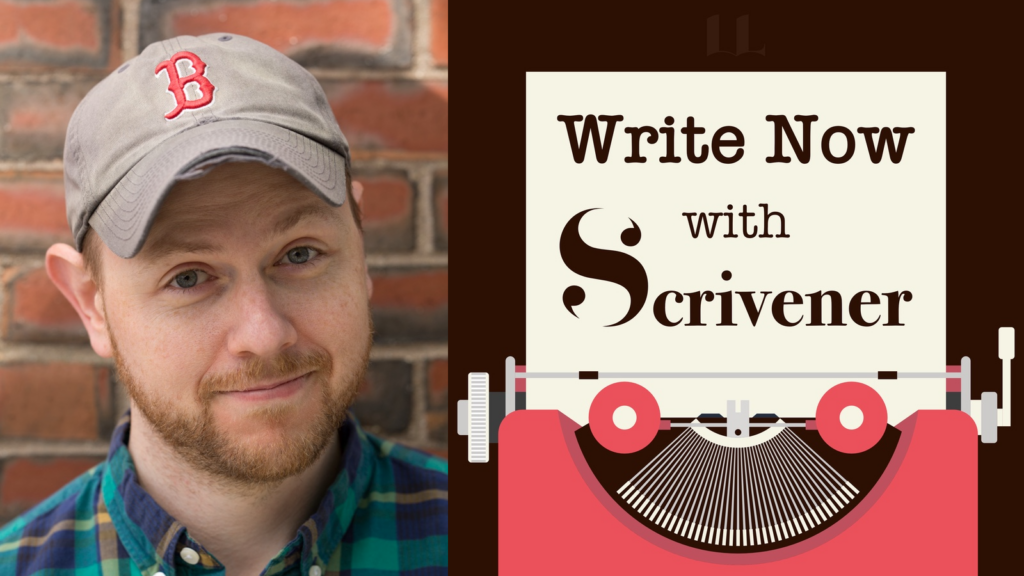We welcome Dan Moren, science fiction author, tech journalist, and podcaster, to talk about his “sci-fi espionage capers.”

Dan Moren juggles a triple career: that of a science fiction author, tech journalist, and podcaster. He discusses the “sci-fi espionage capers” he writes, how he transitioned from journalism to fiction, and how he has used Scrivener to write each of his novels.
Show notes:
- Dan Moren
- Latest novel: The Aleph Extraction
- My writing finances, 2020
- Create Custom Templates for Your Scrivener Projects
Learn more about Scrivener, and check out the ebook Take Control of Scrivener.
If you like the podcast, please follow it in Apple Podcasts or your favorite podcast app. Leave a rating or review, and tell your friends. And check out past episodes of Write Now with Scrivener.
Dan Moren has been a tech journalist and podcaster for many years, and published his first “sci-fi espionage caper” in 2017. He has since written two other novels, and switches effortlessly between his three careers.
Dan grew up steeped in sci-fi, and loves espionage novels, hence the marriage between the two genres. “I’m an avid watcher of all sorts of science fiction shows, and reader of science fiction books,” he said, “and I found a few over the years that crossed those genres, but they were never enough for me.” So he decided to write the type of novel that he would love to read.
The titles of these novels, The Aleph Extraction, The Bayern Agenda, and The Caledonian Gambit, or, as Dan says, “The Adjective Noun,” are also nods to espionage novels, like those of Robert Ludlum and others.
These novels are also space operas. “I like something that happens on a big galactic stage. I think that’s one place where espionage and sci-fi are natural partners, because both of them have these expansive worlds.”
With this sort of world building, with many planets and historical events, “the biggest problem is really keeping track of them. I created my own personal wiki to just be able to look something up and see: did I mention this in a previous book, did I, if I created a planet, establish a particular type of climate, or the people there have a particular custom,” or check on details about characters.
For his first novel, Dan would write a few hours on weekends in a coffee shop, sometimes in the evening, but most of his time was dedicated to his journalism. “My first book was written predominantly on weekends around my full-time job.” Now, he writes fiction in the morning, a couple of hours before lunch, when possible, before switching gears and performing his tasks as podcaster and tech journalist.
While most writers don’t want to talk about money, Dan has been very transparent about his income, with several annual articles on his blog showing the breakdown across his three careers. Dan says, “I think a lot of people, especially people who are interested in becoming writers, don’t know much about how the system works. Because writers are people who work alone, there’s not a lot of information sharing between peers in the industry.”
The Scrivener file for Dan’s first novel dates back to 2009, and he has used Scrivener for his long-form writing since then. He set up a template for his novels, so he can re-use his favorite settings and layout. He uses the research folder in his projects to save things that he cuts, that he might want to use later, and also writes documents about planets and systems, not to use in his novels, but as background to build his worlds and flesh them out. “I know there is a Scratchpad, but I find it handy to use the Research section as one of my Scratchpads so I can have a bunch of different files.”
For those who want to start out as fiction writers, Dan’s advice is simple. “There’s two things I recommend to writers. One is to do the work. You’ve got to sit down, you’ve got to write, and you’ve got to do it regularly. Number two… there’s no magic to it. You work hard at it, you produce something, and that first thing you write may not work. You’re going to deal with a lot of rejection. Staying with it is the most important thing. It’s the thing that’s going to make the difference in the end.”
Kirk McElhearn is a writer, podcaster, and photographer. He is the author of Take Control of Scrivener, and host of the Write Now with Scrivener podcast.

